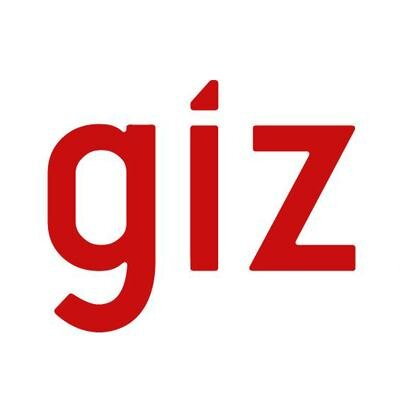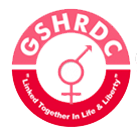Local feminist perspectives as transformation levers for greater gender equality
To address existing knowledge gaps on local feminist perspectives at different levels and analyse their potential as transformation levers towards greater gender equality, IDOS works together with three partner institutes. In cooperation with the Gender Studies and Human Rights Documentation Centre, the Goa Management Institute and Gender in Detail, this project explores the potential of local feminist perspectives to act as levers for transformative change for greater gender equality and sustainable development in Ghana, India and Ukraine.
Project Lead:
Ina Friesen
Stephan Klingebiel
Project Team:
Jacqueline Götze
Financing:
Deutsche Gesellschaft für Internationale Zusammenarbeit (GIZ), German Institute of Development and Sustainability (IDOS)
Time frame:
2023 - 2025
/
ongoing
Co-operation Partner:
Goa Institute of Management, India
Gender Studies and Human Rights Documentation, Ghana
Gender in Detail, Ukraine
Project description
The current political agenda by the German government of a feminist development policy is very much in tension with increasing anti-gender and anti-democratic developments globally. In many contexts, we see a shrinking space for the rights and participation of women and other marginalised genders. Over the past years, the backlash against women’s and marginalised genders’ sexual and reproductive health and rights has intensified in many countries across the world, diminishing the outlook for gender equality. Violence against women, girls and LGBTIQ* people remains high and their effective participation in formal and informal political processes and decisions is increasingly limited, persecuted or prohibited.
The reasons for this can be found in the dominating patriarchal systemic-structural conditions and respective socio-cultural norms and practices, which constitute barriers to sustainable, gender-transformative policies. In this context, local feminist concepts and perspectives have the potential to produce context-specific alternative approaches to development processes, which address prevailing norms and practices.
To contribute to filling existing knowledge gaps on local feminist perspectives and concepts in partner countries at different levels and analyse their potential as transformation levers towards greater gender equality, IDOS works together with three partner institutes in Ghana, India and Ukraine. In cooperation with the Gender Studies and Human Rights Documentation Centre, the Goa Management Institute and Gender in Detail, the project “Local feminist Perspectives as Transformation Levers” explores the potential of local feminist perspectives to act as levers for transformative change for greater gender equality and sustainable development in Ghana, India and Ukraine.
Following participatory feminist research principles grounded in a feminist research ethic, each cooperation partner will prepare a study which
- Explores how existing socio-cultural norms and practices and the prevailing systemic structural framework conditions prevent sustainable, gender-transformative policies in the respective country;
- Explores and analyse existing local feminist perspectives in their country;
- Demonstrates how these perspectives can be used as levers for transformative change for greater gender equality and sustainable development;
- Provides policy recommendations for the respective local and national policy context.
The study prepared by the Gender Studies and Human Rights Documentation Centre analyses contemporary feminist perspectives in Ghana to demonstrate how they can be used as levers for transformative change for greater equality and sustainable development.
Despite the constitutional guarantees of gender equality in Ghana, the lax enforcement and the operation of customary law rather entrenches discrimination towards women and non-male genders. Thus, social norms and gender inequitable behaviours continue to impact opportunities and human potential leading to gender gaps in education, access to health services, control over and access to long-term assets and resources. This research grounded in feminist research and methodology will use a multi-stage sampling technique to conduct a qualitative enquiry on how various actors in the feminist and gender space in Ghana have been involved in gender based violence related policy making processes. It will document feminist perspectives on their roles, the levers for transformative change as well as their recommendations for the Ghanaian policy context.
The study conducted by the Goa Institute of Management underscores the significance of placing local feminist perspectives at the forefront of the discourse on transformation in India. It recognizes that the struggle for gender equality is not a monolithic endeavour but a mosaic of experiences, each unique and intricately woven into the fabric of local communities. By understanding and amplifying the grassroots movements and community-based initiatives, this study seeks to amplify the voices of women who have long been the architects of change in their respective locales.
The study will highlight the work of grass-roots organisations in the domain of gender, health and climate action in India. Through the study, the team aims to document how grassroot organisations are challenging entrenched gendered social norms to improve the quality of life of women and girls in rural areas to enhance their access to basic services, give voice to rural women in decision-making processes and increase their livelihood opportunities through skilling.
This project aims at amplifying the gender-sensitive interventions undertaken by grass-roots organisations in the domain of health and climate change. Our study will also propose policy recommendations for greater focus on gender in climate action policies as well as inclusion of local voice in health programmes (for transformatory changes).
The Ukrainian partner institute, Gender in Detail focuses on Local feminist perspectives as transformation levers for sustainable development in Ukraine in the context of ongoing defence. Contrary to stereotypical feminist predictions that war would lead to a conservative shift, this did not occur in Ukraine following the onset of the Russian war in 2014. On the contrary, active women's participation in volunteering, including military volunteering, precipitated significant gender changes in social, military, and political spheres, giving rise to influential public feminist debate. The full-scale Russian invasion in 2022 brought extreme challenges to the state and society and halted the progress of the feminist movement.
Although Ukrainian feminists are currently grappling with the ramifications of war, they have addressed broad policy issues, such as feminist perspectives on defence, sustainable development during times of conflict, and the recovery and rebuilding of Ukraine, advocating for gender mainstreaming in these processes. Feminists have provided services to vulnerable groups, engaged in women’s and LGBTQ* rights activism, initiated advocacy campaigns and commented on various topics publicly.
The Ukrainian team aims to map and analyse the range of activities and voices of Ukrainian feminists since the full-scale Russian invasion, with the objective of formulating feminist policy proposals that can serve as catalysts for sustainable development in Ukraine within the context of ongoing defence efforts and during periods of peace.
The project will organise regular exchanges among the partner institutes and IDOS virtually and in the partner countries to exchange on research methodologies, findings and derived policy recommendations for different local, regional and national policy contexts. In a multi-stakeholder event planned for early 2025 in Germany, all partners will discuss their studies’ findings with multiple actors from different sectors, governance levels and world regions. The IDOS team will prepare a synthesis study that further analyses the findings of the studies prepared by the three partner institutes and their policy recommendations from a comparative perspective.
The findings of the study shall increase local, national and international policy makers’ knowledge and understanding of local feminist concepts and the context-specific approaches to address prevailing norms and practices in transformative development processes.
Publications
-
Three cornerstones for Germany’s Feminist Development Policy
Friesen, Ina / Alma Wisskirchen (2022)
Bonn: German Development Institute / Deutsches Institut für Entwicklungspolitik (DIE), The Current Column of 2 May 2022 -
Ten recommendations for Germany’s feminist development policy
Friesen, Ina / Alma Wisskirchen (2022)
Discussion Paper 17/2022



